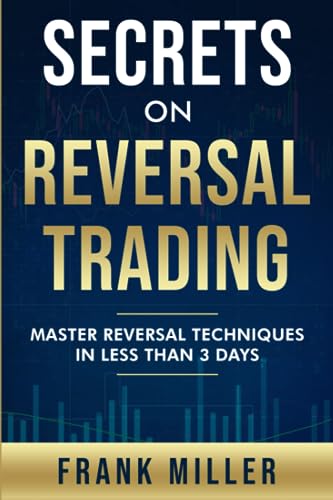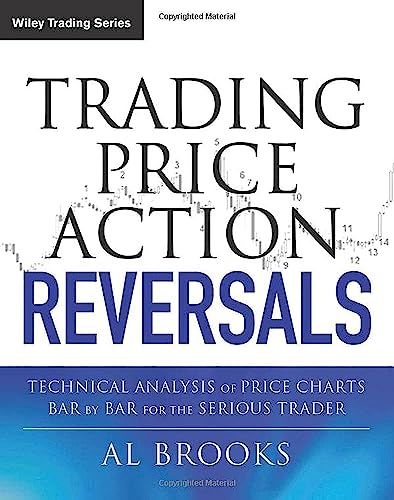- Miller, Frank (Author)
- English (Publication Language)
- 92 Pages - 11/01/2020 (Publication Date) - Independently published (Publisher)
Introduction
Reversal trading is a powerful strategy that can help traders maximize their profit potential in the financial markets. By identifying key market reversals and taking advantage of them, traders can capitalize on price movements and generate substantial returns. In this article, we will explore the concept of reversal trading and discuss effective techniques to optimize profit potential.
Understanding Reversal Trading
Reversal trading involves identifying significant turning points in the market, where the price direction changes from its previous trend. These reversals can occur in various financial instruments, including stocks, currencies, and commodities. Traders who specialize in reversal trading aim to enter positions at these turning points, anticipating a strong price movement in the opposite direction.
The Importance of Timing
Timing is crucial in reversal trading. Traders need to identify potential reversal points accurately to maximize their profit potential. This requires a combination of technical analysis tools, such as trendlines, support and resistance levels, and candlestick patterns. By carefully analyzing these indicators, traders can increase their chances of entering trades at optimal price levels.
Key Techniques for Reversal Trading
1. Identifying Reversal Patterns: Traders should focus on recognizing specific chart patterns that indicate potential reversals, such as double tops and bottoms, head and shoulders, and bullish or bearish engulfing patterns. These patterns can provide valuable insights into market sentiment and help traders make informed trading decisions.
2. Confirmation with Indicators: To enhance the accuracy of reversal signals, traders often use technical indicators like the Relative Strength Index (RSI) or Moving Average Convergence Divergence (MACD). These indicators can provide additional confirmation of a potential reversal, increasing the trader’s confidence in their trading strategy.
3. Setting Stop Loss and Take Profit Levels: Proper risk management is essential in reversal trading. Traders should always set stop loss levels to limit potential losses if the market moves against their position. Additionally, setting take profit levels allows traders to secure profits when the price reaches a predetermined target, ensuring they capture a significant portion of the price movement.
Managing Risk in Reversal Trading
While reversal trading offers lucrative profit potential, it also carries inherent risks. To manage these risks effectively, traders should consider the following:
1. Adequate Capital Allocation: Traders should allocate an appropriate portion of their capital to each reversal trade, considering their risk tolerance and overall portfolio diversification.
2. Utilizing Proper Position Sizing: Determining the correct position size based on the trader’s risk appetite and the specific trade setup is crucial. This ensures that potential losses are kept within acceptable limits.
3. Continuous Learning and Adaptation: Markets are dynamic, and trading strategies need to evolve accordingly. Traders should continuously educate themselves, stay updated with market trends, and adapt their strategies to changing market conditions.
Conclusion
Reversal trading is a powerful strategy that can help traders maximize their profit potential by capitalizing on market reversals. By understanding the concept of reversal trading, using effective techniques, and managing risks appropriately, traders can increase their chances of success in the financial markets. Remember to always conduct thorough analysis, practice proper risk management, and stay disciplined in executing your reversal trading strategy.
- Miller, Frank (Author)
- English (Publication Language)
- 92 Pages - 11/01/2020 (Publication Date) - Independently published (Publisher)
- Hardcover Book
- Brooks, Al (Author)
- English (Publication Language)
- 576 Pages - 01/24/2012 (Publication Date) - Wiley (Publisher)
- Pecaut, Rayner (Author)
- English (Publication Language)
- 71 Pages - 08/04/2022 (Publication Date) - Independently published (Publisher)
- Aziz, Dr. Andrew (Author)
- English (Publication Language)
- 366 Pages - 07/28/2016 (Publication Date) - CreateSpace Independent Publishing Platform (Publisher)




